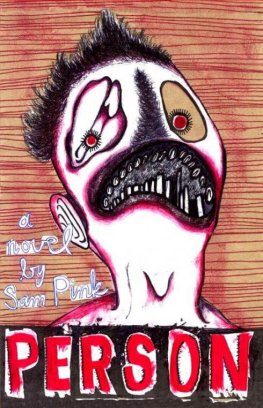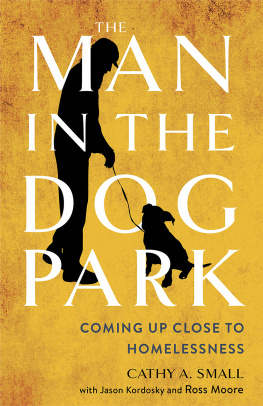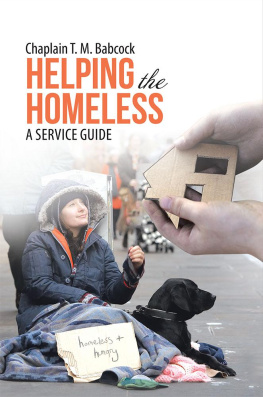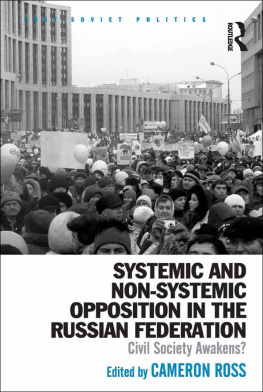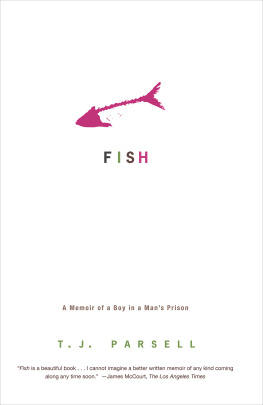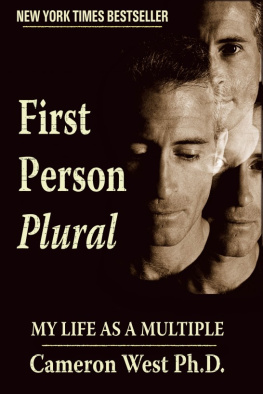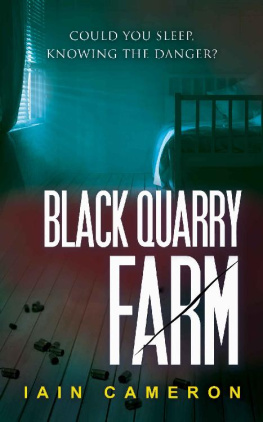
The Homeless Person in Contemporary Society
The homeless person is thought to be different. Whereas we get to determine our difference or sameness, the homeless persons difference is imposed upon them and assumed to be known because of their homelessness. Exclusion from housing a commodity that should be accessed either from the market or by social provision signifies the homeless persons incapacities and failure to function in what are presented as unproblematic social systems.
Drawing on a program of research spanning ten years, this book provides an empirically grounded account of the lives and identities of people who are homeless. It illustrates that people with chronic experiences of homelessness have relatively predictable biographies characterised by exclusion, poverty, and trauma from early in life. Early experiences of exclusion continue to pervade the lives of people who are homeless in adulthood, yet they identify with family and normative values as a means of imaging aspirational futures.
The book demonstrates that the assumed difference of the homeless person drives the form and function of an elaborate, well-resourced, and often well-meaning service system that perpetuates their exclusion from housing, on the one hand, and dependence on the service system, on the other. In the absence of housing, society has developed a complex service system that makes people more reliant on crisis and temporary support services, and through accessing and relying on the services, the homeless persons differences is reified.
Cameron Parsell is Associate Professor at the University of Queensland. He is trained in sociology and social work, and he uses ethnographic research and naturally occurring data. Camerons recent research focuses on people living in poverty and the social services and social policies that pervade their lives.
First published 2018
by Routledge
2 Park Square, Milton Park, Abingdon, Oxon OX14 4RN
and by Routledge
711 Third Avenue, New York, NY 10017
Routledge is an imprint of the Taylor & Francis Group, an informa business.
2018 Cameron Parsell
The right of Cameron Parsell to be identified as author of this work has been asserted by him in accordance with sections 77 and 78 of the Copyright, Designs and Patents Act 1988.
All rights reserved. No part of this book may be reprinted or reproduced or utilised in any form or by any electronic, mechanical, or other means, now known or hereafter invented, including photocopying and recording, or in any information storage or retrieval system, without permission in writing from the publishers.
Trademark notice: Product or corporate names may be trademarks or registered trademarks and are used only for identification and explanation without intent to infringe.
British Library Cataloguing-in-Publication Data
A catalogue record for this book is available from the British Library
Library of Congress Cataloging-in-Publication Data
Names: Parsell, Cameron, 1974 author.
Title: The homeless person in contemporary society / Cameron
Parsell.
Description: Abingdon, Oxon; New York, NY: Routledge, [2019] |
Includes bibliographical references and index.
Identifiers: LCCN 2018011892 | ISBN 9781138504219 (hbk) |
ISBN 9781315145877 (ebk)
Subjects: LCSH: Homeless persons. | Homelessness.
Classification: LCC HV4493.P37 2019 | DDC 305.5/692dc23
LC record available at https://lccn.loc.gov/2018011892
ISBN: 978-1-138-50421-9 (hbk)
ISBN: 978-1-315-14587-7 (ebk)
Typeset in Times New Roman
by Apex CoVantage, LLC
For Fergus, Amaia, and Amie
I am deeply grateful to the hundreds of people who have experienced homelessness and gave their time, insights, and contributions to enable me to write this book. Over ten years, I have approached people who either were homeless or had recently left homelessness and asked them to participate in research. People were generous and rarely declined. Most often, I have asked them to participate in a semi-structured interview and sometimes to complete surveys; every now and again, I have asked them for permission to access government information about them, and many times, I have asked them to participate in research so that I could overtly observe their lives. To say I am indebted to them and that the book would not have been possible without them is an understatement. I hope to demonstrate in the pages that follow the candid, nuanced, and personal information that many people went well out of their way to help me understand. Thank you.
This book was written with the strong support of many professionals and volunteers from not-for-profit organisations and government departments. I cannot name them all personally here. The people who gave their expertise and perspective include volunteers providing resources to people who are homeless; outreach workers who have let me tag along with them driving and walking around public spaces; staff in crisis, transitional, and permanent supportive housing; and senior management and executive staff in all three tiers of government in Australia and small and large not-for-profit organisations alike. These professionals have not simply acted as gatekeepers to their clients (important as this is), but they also have advised, challenged, and very often helped me understand homelessness and the service system in a more comprehensive and deeper way. Of the numerous people I am grateful to, I especially acknowledge and thank Karyn Walsh, AM; Chris Deighton; Felicity Reynolds; Kathryn Kenny; Andy Johnson; Wendell Foster; Helen Glover; Anne Wilson; Mark Jentz; Liz Giles; and Travis Gilbert.
During my program of research and the writing of this book, I have been privileged to work with brilliant scholars at the Institute for Social Science Research and at the University of Queensland more widely. At UQ, I have received fine mentorship and training from Greg Marston, Andrew Jones, Harriot Beazley, Mark Western, Jolanda Jetten, Brian Head, Janeen Baxter, Genevieve Dingle, Rhonda Phillips, Michele Haynes, Cheryl Tilse, and Paul Memmott. All of these colleagues have taught me the importance of rigorous social science research as a means not only to understand but also to address social problems.
I have similarly benefited from generous mentorship from some seminal scholars beyond the University of Queensland. The late Tony Vinson, AM, was my honours supervisor at the University of New South Wales and has since been an inspiration. Tony is a public intellectual, and I will always be grateful to him. The learned Suzanne Fitzpatrick from Heriot Watt University has advised and guided me and strongly supported my research. Deborah Padgett at New York University first assisted me through writing excellent material on rigour in research and has since been a source of wisdom about homelessness and social science in the United States. I am grateful too to Dennis Culhane from the University of Pennsylvania for his collaboration.
I have conducted the research that drives this book with the assistance, support, and direction of many colleagues. Thank you to Maree Petersen, Zoe Walter, Charlotte ten Have, Rose Stambe, and Andrew Clarke. These UQ colleagues have helped me to gather, analyse, and write about data used in this book. Beth Watts and my older brother Mitch Parsell collaborated with me and showed me a more nuanced understanding of charity and choice in two articles that I have developed in this book. I also appreciate the contributions of Karina Kersh, who transcribed, verbatim, more than one hundred qualitative interviews that form part of this book. Ella Kuskoff did a splendid job proofreading the final draft and politely pointing out when I was less than clear. In addition to the UQ mentors and colleagues already mentioned, I have benefited greatly from a team of outstanding professional staff led by Cordelia Jackson.



